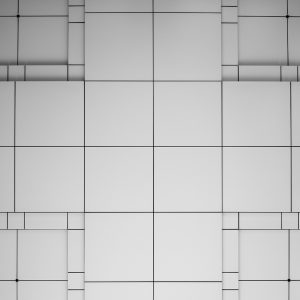Quartz is known for its beauty and durability. It is one of the most in-demand options for home improvement projects such as kitchen and bathroom countertops. It is also one of the most versatile and abundant minerals on Earth and it plays a huge role in many industries. Keep reading to discover what are the quartz applications ranging from construction and satellites.
Quartz in Electronics
Quartz is a vital ingredient to use in the electrical industry. This is primarily due to its piezoelectric properties. Piezoelectric means that a certain material can generate electricity if it is subjected to a specific amount of mechanical stress. This unique ability makes quartz a very useful and hard-to-replace material in a variety of electrical devices. Quartz ensures that these devices can continue to operate with precision and reliability.
One of the primary applications of this mineral is in oscillators. Computers, radios, clocks, and many more daily devices use oscillators, making quartz an important part of our daily lives. Oscillators are used to create and maintain frequencies in circuits, and they are essential for timing functions. Quartz can vibrate at a certain frequency, ensuring that the timing remains accurate.
You might be wondering, what are the quartz applications other than oscillators? This amazing material is also used in resonators and filters. Their main function is to help manage the frequencies of signals and to ensure clean communication. This is similar to the job they have with oscillators but the result and the aim are different. Without using quartz, many of the devices we use and rely on regularly would fail to function, such as GPS devices.
Quartz is most likely not the first precious material that comes to mind in the context of construction. For example, a stone like marble that is renowned for its usefulness and beauty in architecture might be more memorable. However, quartz acts as a silent hero in the construction industry. It is a crucial part of the industry thanks to its hardness, durability, and resistance to wear and tear.
Quartz in Construction
The most common use of quartz in construction is as aggregate in concrete. When quartz is mixed in with cement, it provides the strength and resilience that concrete needs to bear heavy loads. This is an especially important step in the construction of structures that are made to withstand harsh environmental conditions.
In addition to its use as aggregate in the construction industry, quartz sand is also a key ingredient used in making cement. The fine grains create a strong and durable substance when mixed with the other ingredients and the mixture is often used to bind bricks and stones to each other.
Quartz is also commonly used in decorative projects. Its most common purposes are tiles, flooring, and accent walls. It is a popular stone as it can combine long-lasting durability with aesthetic appeal.
Quartz in Countertops
One of the most known and popular applications of quartz is in kitchen and bathroom countertops. Quartz countertops have increasingly risen in popularity, especially in recent years. This is due to their ease of use, low maintenance, durability, and beauty. Moreover, engineered quartz offers endless color and pattern options, making it a versatile and flexible option that can fit in with every design style.
Engineered quartz is mixed in with resins, binders, and pigments. As a natural stone, both quartz and quartzite are porous stones. This means that they have tiny holes all over them that can house dirt and bacteria. These dirt particles can cause stains over time and the bacteria can even turn into mold. To combat this, the resins and binders are added to make the stone non-porous.
In its engineered state, quartz countertops don’t require sealing. The necessary ingredients to make the stone durable against stains and moisture are added during the manufacturing process. This makes quartz countertops one of the most low-maintenance options because you would otherwise need to periodically reseal other natural countertops.
Another amazing benefit of quartz countertops is their consistency. As it is a manufactured stone, the patterns and colors that adorn the stone are much more consistent compared to natural stones. This creates a more uniform and put-together appearance.
Quartz in Scientific Instruments
When asked what are the quartz applications, it is important to consider both everyday uses and scientific areas. Quartz is also an essential material for scientific research and discovery. Similar to its use in electrical instruments, its precision is used for stabilizing various gears.
Quartz is used in optical components such as lenses and prisms. Quartz is transparent to UV light, and it can be precisely cut into the desired shape and size. When these two abilities are combined, the result is a stone that allows for very high levels of accuracy and clarity. These abilities are commonly employed in areas such as microscopes and laser technology.
In addition to its uses in the optical field, quartz is also used in atomic clocks, which are devices that require immense control and precision. As mentioned before, quartz can be used in regular clocks as well, however in the case of atomic clocks, their reliability is much more important.
The scientific uses of quartz extend beyond high-tech applications. Quartz is also used in thermometers and pressure gauges. These are straightforward devices with more simple working mechanisms. However, in the case of scientific research, their precision and reliability are equally paramount.
Quartz in Telecommunications
Quartz is an essential part of our communication systems. It plays an important role in ensuring that the systems function smoothly and they are operable. Its durability also makes it an essential material because as communications have increased over time, having a durable and reliable working system has proven itself to be more and more important.
One of the primary roles of quartz in telecommunications is to filter the frequencies and transmit radio calls. Many people might not guess that the answer to the question “What are the quartz applications?” might extend to the space. However, quartz is also used in satellite communication systems where they signal incoming and outgoing frequencies and ensure clear transmissions.
Quartz offers unparalleled stability and thanks to this great material satellites, radios, and similar devices can operate without a hitch over long periods even if they are subjected to varying and sometimes harsh environmental conditions.
In short, quartz is much more than the beautiful crystal that first comes to mind. It is an important material used in a variety of areas that affect our lives every day from our cell phones to construction.
Understanding what are the quartz applications will not only help you gain a new appreciation for this underrated stone, but it will also help you make the best decision for your home improvement projects. Its unique properties and abilities make it a popular option with many benefits. Moreover, the added pigments and resins help bring it to the next level. Quartz is an indispensable material used in every facet of our lives.
Reference: https://keystone-granite.com/blog/



